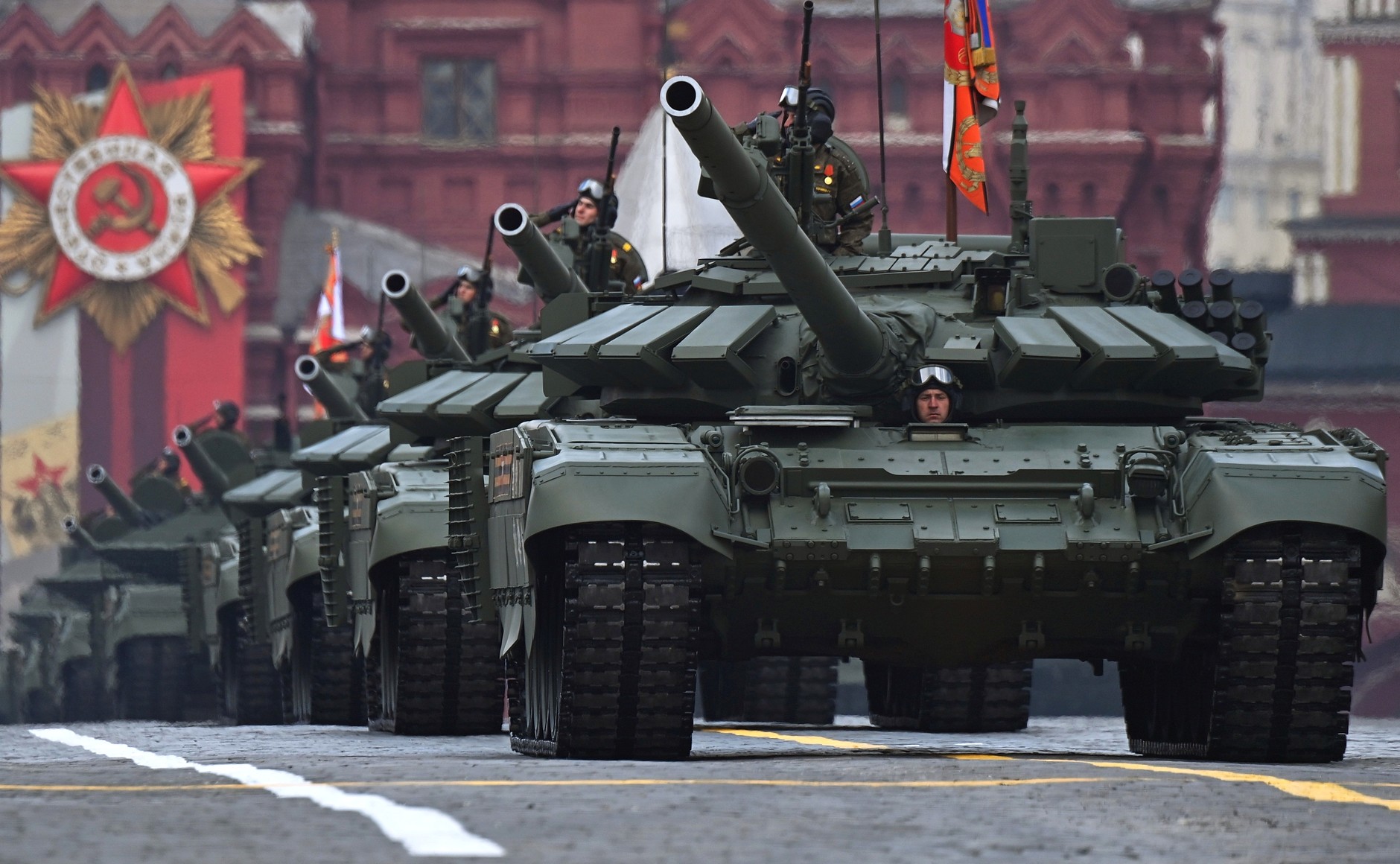 Russian tanks in Moscow's Red Square for the 2022 Victory Parade | Photo sourced from the Kremlin
Russian tanks in Moscow's Red Square for the 2022 Victory Parade | Photo sourced from the Kremlin
It’s Time We Recognize Russian Colonization
Although the U.S. is preparing for the threat of future Russian invasions by expanding NATO and implementing harsh sanctions, few in the government have named Russia’s invasion of Ukraine for what it is: Russian colonization. When viewed in context, it becomes clear that Russia’s assault on Ukraine is merely the latest push in Russia’s modern-day colonial project and the reluctance for the U.S. to name it as such has prevented the government from seeing the full danger of the invasion, which could include the erasure of Ukrainian culture, ethnic cleansing, and even genocide. The presence of the three defining characteristics of colonization, domination, cultural imposition, and exploitation, during Russia’s slow expansion since the 2000s prove that Russia is not only annexing territory but also colonizing the region.
Russia’s actions over the past twenty years emulate the expansion of the Russian empire, which unlike typical colonial empires, focused on colonizing the “frontier” land of its territory (i.e. land without clearly defined borders, recognized sovereignty, and populated by nomadic tribes). Consequently, Russia never experienced decolonization as other colonial powers did, effectively allowing Russia to “get away with” its colonization. Now, Russia is relying on the same unwillingness of the international community to recognize its colonization in order to control Ukraine, just as it has done multiple times since the 2000s.
The Second Chechen War was Russia’s first modern colonial endeavor as the state fought to reinstate control over Chechnya. Following the independence gained by the Chechens during the 1990s, Russia focused on re-taking Chechnya starting in 1999. In 2000, Russia succeeded in imposing itself over the region and installing a pro-Russian leader. Moreover, Putin has promoted the integration of Russian and Chechen culture, claiming that the two ethnicities “share a common destiny,” while also promoting a supposedly ‘supra-ethnic’ identity that is actually based on ethnically-Russian language, culture, and values. Finally, Putin gave the leader of Chechnya “free rein” over the region’s economy but at the expense of subordination to Putin, meaning he exercises heavy influence over the government’s decisions.
Fifteen years after the start of the second Chechnya war, Russia turned its attention to Crimea seizing control of the peninsula through an illegal invasion in 2014. Since then, Russia has imposed policies to establish political domination such as automatically switching citizens to from Ukrainian citizenship to Russian citizenship and declaring anyone who kept their Ukrainian citizenship a “foreigner.” These citizens were then and continue to be denied basic rights. Culturally, the number of students learning in Ukrainian fell from 13,589 in 2013 to 371 in 2016. Similarly, Russia has illegally exported cultural artifacts, looted and destructed monuments, and shuttered churches. Economically, Russia has control of the region’s resources while the economic situation in Crimea has declined, providing evidence of economic exploitation.
Eight years after the annexation of Crimea, the Russian military invaded Ukraine again in hopes of not only annexing swaths of territory but also toppling the democratic government and reinstating a pro-Russian puppet government. These plans, if successfully carried out, would have established total Russian domination over Ukraine. Although the fulfillment of these plans seem unlikely now, Russia remains committed to establishing control in Eastern Ukraine and erasing Ukrainian culture in the areas it seizes.
The targeting of Ukrainian culture and people by Russia is already visible in Ukraine, as evinced by the deliberate targeting of civilians, and non-military cultural buildings. Street signs are changing from Ukrainian to Russian. Forced resettlement of Ukrainians into Russia is happening by the hundreds of thousands, where camps are being set up to filter Ukrainians who will accept Kremlin control from those who will not. Thousands of Ukrainian children are also being trafficked to Russia where Russian families are quickly adopting them. Once Russia establishes domination and cultural imposition in the areas it’s seized, it will be easy for the country to strangle Ukraine’s economy and resources—as it has already done by controlling the recent release of grain shipments from Ukraine.
People in ex-Soviet states have voiced their fear that Putin will not stop at Ukraine and that their countries will be next, but the U.S. has yet to name this possible expansion as a form of colonization. Russia is and has been using the colonial tactics of domination, cultural imposition, and economic exploitation unchecked. Without effectively challenging Putin’s expansion, it is likely he will continue beyond Ukraine, just as he moved from Chechnya to Crimea to Eastern Ukraine. The U.S. should recognize that Putin is pursuing a path of colonization and help countries at Russia’s periphery to not only bolster their physical defenses but also to prepare strategies aimed at resisting the full breadth of Russian colonization.





